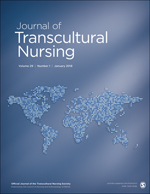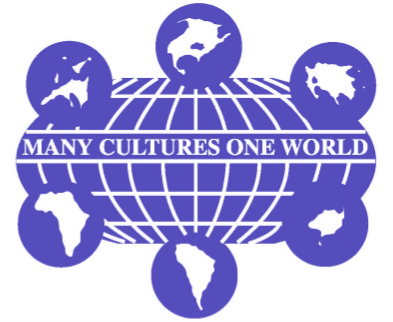 Journal of Transcultural Nursing
Journal of Transcultural Nursing
Topics of interest include, but are not limited to:
Theory
- Nursing, anthropological and social theories that explain the components of culturally congruent care, health care beliefs, lifeways and other culturally relevant phenomena.
- Constructing a cultural language. Should we have a common vocabulary?
- Ethnonursing vs. ethnography? Cross-cultural vs. transcultural?
- Cultural components of current nursing theories.
- Cultural theory applications in organizational leadership, management of diverse work forces.
- Defining a common knowledge base for nurse anthropologists and transcultural nurses.
- Definitions of culture (including the culture of alternative lifestyles, workplace cultures, etc.).
- New perspectives / models.
- Taxonomy of culture in health care.
Practice - "Compliance" issues: Is the client non-compliant or is the plan of care culturally incongruent?
- Birth & rites of passage rituals that impact health care practice.
- Cultural assessment instruments.
- Cultural beliefs about pregnancy, labor and delivery and post-partum care.
- Cultural definitions of illness.
- Family roles and responsibilities for ill clients: How does the nurse help the family meet its role expectations with the family member who is ill?
- Hospice care and advanced directives (withdrawal of treatment issues).
- Interpreters: What are the benefits and drawbacks to using interpreters in health care?
- Issues in Death and Dying (e.g. prolongation of life, autopsy, care of the body after death).
- Medications and home remedies.
- Mental health/illness: What does the nurse need to know about the cultural values and perspectives of mental illness of the client and family?
- Nutrition & diet: How can the nurse integrate a prescribed therapeutic diet into the client's culturally-specific ways of preparing foods.
- Patient education: How does the client's culture affect the method and content of patient education (e.g. prenatal care, discharge planning, newly diagnosed diabetics, etc.).
- Radically-abusive clients: How does the nurse respond to radically-insensitive clients?
- Symptom management: How does culture affect the patient's perspective of his/her symptoms, and how does it affect the nurse's assessment of these symptoms?
- Taxonomy of culturally appropriate diagnoses, interventions and standards of care.
- Transcultural perspectives in the care of the elderly.
- Transcultural verbal and nonverbal communication methods.
- Use of culture care theory as well as sociological and anthropological theories to guide clinical practice.
Research Methodology
- Grant / funding opportunities.
- Instrument development and evaluation: validity and reliability issues.
- Integration of qualitative and quantitative methods in grant proposals for studies of cultural phenomena.
- Mentoring researchers of cultural phenomena.
- Methodologies useful for investigating cultural phenomena.
- New research instruments for use in transcultural nursing research.
- Subject recruitment & retention (especially for special populations).
Theory testing. - Translation issues.
Education / Pedogogy
- Certification standards in transcultural nursing. Should there be a sub-specialty and/or generic certification?
- Cultural immersion approaches (student practica in foreign countries, in other-culture U.S. communities).
- Educational tools for increasing cultural awareness (e.g. utilizing works of literature).
- Integrating transcultural nursing concepts into the baccalaureate and graduate curricula.
- Staff development programs for cultural competence skill and knowledge base development.
- Teaching foreign nursing students.
- Teaching minority American nursing students (A.D.N. / B.S.N. / graduate).
- Transcultural nursing curricula.
International Activities and Perspectives. - Collaborative international research models.
- International consultation (educational, clinical, etc.): use of theoretical frameworks to guide process.
- Global student and faculty exchange: criteria and opportunities.
- Government and non-government health policy formation.
- Impact of government regulations on health care delivery to minority populations.
- Establishing and international forum on common health care issues.
- International programs.
- Political and legislative trends relevant to diversity and health care.
Information Resources
- Internet search strategies for cultural topics and resources.
- Book reviews.
- Nursing programs offering graduate specialization in transcultural nursing
- Library search strategies for cultural topics.
- Annotated bibliographies.
